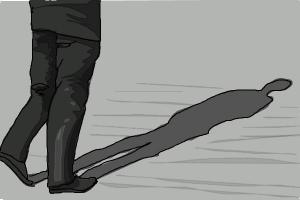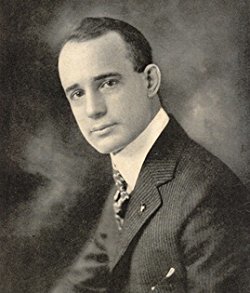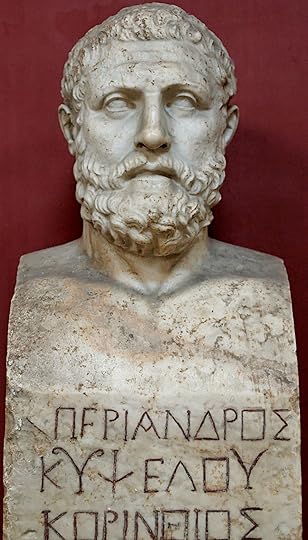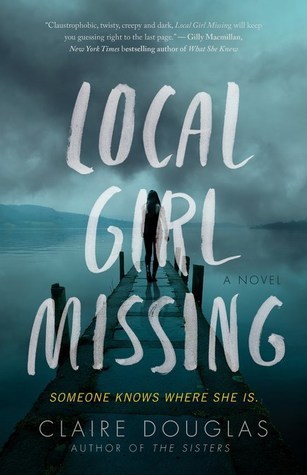Richard Harris's Blog, page 26
August 27, 2017
Are You a Genuinely Good Person?
In her article titled “Are you a good person, or just insecure?” attorney Lidija Hilje essentially asks whether the good things you do are done because they make you feel good, or instead beause you were taught to act that way/are fearful of the reprucusssions if you don’t do good/believe in a more theoretical way that good for good’s sake makes it right. The reason this is important, she argues, is that motivation lies behind whether the act (and therefore the person) is genuinely good.
For example, is the act of holding the door open for someone sufficieiently good in and of itself, or does it matter that you only do so for cute girls you’re interested in talking to?
By extension, is it possible to do good for the wrong reasons? Is spending time with your grandfather only in his twilight years a kind act on its own, or does it matter that you’re trying to wiggle your way into his will?
These are the types of questions Ms. Hilje examines in her piece and she basically comes up with three things to change our underlying motives. Here’s a short summary.
1. Detect
The hardest part with making a change is detecting what needs to be changed. Since we are subjective by nature, and since we pretty much appear super normal to ourselves, this part is a challenge. On the other hand, just by detecting notions that are harmful, more than half your job is done.
2. Deflect
When you’ve realised what you need to work on, or when you recognise in a certain situation that your motivation is off, make the effort to make the change in the right direction. This will sometimes mean saying no to some people you have usually said yes to; it might also mean standing up to people you never stood up to before. It is very trying, but well worth it.
3. Respect
Yourself.
Make a conscious choice to have higher regard for your personal boundaries. Respect yourself enough to give yourself a gift of personal freedom.


August 26, 2017
The Power of Invisible
In a powerful piece for The New York Times, noted writer and essayist Roger Rosenblatt recently penned a piece titled “The Invisible Forces That Make Writing Work.” Although ostensibly about the non-visible forces that shape writing, the overarching theme is one that transcends the craft and whose lessons can be applied to our everyday lives.
That’s why, I suppose, Mr. Rosenblatt begins his piece for the Book Review section by quoting @kathrynschulz:
“[W]e cannot see most of the things that rule our lives. Magnetic fields, electric currents, the force of gravity all work unseen, as do our interior arbiters of thoughts, inclinations, passions, psyches, tastes, moods, morals, and — if one believes in them — souls. The invisible world governs the visible like a hidden nation-state.”
As Mr. Rosenblatt goes on to point out, good fiction mirrors life in that there are signs that pop up at every step of our lives; often it is only in hindsight that we as readers (and human beings) pick up on this and make sense of these clues. And just as nature is defined by change, so too is writing an organic process.
Roger Rosenblatt specifically refers to Fitzgerald’s The Great Gatsby, but I think many readers would be surprised how much even character names (let alone their relationships and personal growth arcs) change through the draft process. The same is also true of us as humans. We have an idea where we want to be in, say, a year, yet along the way there are so many competing forces at play that it’s inevitable we will end up somewhere else – and as someone else.
I think that’s part of the reason an author like Jonathan Franzen is so popular today. His stories aren’t particularly complex or radical in their approach. Still, Franzen manages to capture the complexities of personal growth and interpersonal relationships, especially in a book like Freedom.
Mr. Rosenblatt ends his own piece for the NYT by describing how he resurrects the invisible through his own writing, and it’s a poignant message:
“I am not unaware that my writing has improved in the nine years since our daughter’s death. My work is sharper now, and more careful. Happily would I trade all the books I’ve written in those nine years for one moment with Amy alive, but since that bargain is impossible, I write to fill the void her death created. And something else: Since I believe it was Amy’s death that led me to write more seriously, she lives with me invisible. I write to see her.”


August 24, 2017
Open Door Funding
“Funding opportunity designed to respond to timely and ambitious arts sector initiative.”
Do you have an arts initiative in Toronto worthy of funding? If so, then @TorontoArts may have some money for you. Click here to learn more.


Quote of the Day
Before this morning, I’d never heard of Diane Ackerman, who, according to Wiki, “is an American poet, essayist, and naturalist known for her wide-ranging curiosity and poetic explorations of the natural world.”
However, while poking around the interweb on the subject of wonder, I came across this little golden nugget of nuggetness:
“Wonder is the heaviest element on the periodic table. Even a tiny fleck of it stops time.”
I like prose that hits the mark in as few words as possible, a rule I’m constantly reminded I break all the time. Nonetheless, I enjoy reading it from others.
With today’s Quote of the Day, something about its simplicity caught my attention and I felt compelled to jot it down. Philosophers have long talked about the critical difference between questioning and having a sense of wonder and I have to agree. It’s that small yet significant variance in meaning – one for answers to the unknown, one for maintaining astonishment at the world around you – that I believe is a defining trait to a healthy, vibrant, creative mind.
I suppose that when many of us think of “wonder” we think of things like the miracle of birth, the gift of love, the pleasant shock of the unexpected, or perhaps just a gargantuan object in nature like Everest or the Grand Canyon. Yet what I like about Ackerman’s quote is that she mentions how “even a tiny fleck of it stops time.”
So true. Who was it that first said God is in the small things? Anyway. Doesn’t matter. Someone long, long ago realized this and we’re still reveling in its meaning today, as I am with Diane Ackerman’s quote.


June 30, 2017
Quote of the Day
“Desire is the starting point of all achievement, not a hope, not a wish, but a keen pulsating desire which transcends everything.”
Napoleon Hill, author of Think and Grow Rich
To be honest, before this morning I’d never heard of Napoleon Hill (1883–1970). Perhaps that’s because I’m a dullard and an ignoramus, or maybe it’s because I don’t read self-help books. Either way, apparently Mr. Bonaparte Dynamite Hill was a big deal back in his day because Think and Grow Rich is still one of the top 10 best-selling self-help books of all time (and #1,305 on Amazon’s Best Seller Rank nearly 50 years after his death!).
I probably wouldn’t have heard of Napoleon Hill this morning if not for Benjamin P. Hardy (@BenjaminPHardy) and his piece entitled “2 Quotes That Will Reshape Your Approach To Life.” Aside from being an interesting carpe diem-driven piece on, well, seizing the day, it also yielded today’s Quote of the Day and a belief I believe in with unbelievable passion.
In my current novel, The Redemption of Guilt, I try and flip on its head the age-old notion that guilt is an albatross and instead look at its redemptive power through the travails of the story’s characters. In a similar way, I think Napoleon Hill was not talking about desire in the same way that some of the more austere would have considered the word at the turn of the 20th century. Desire, like passion, is a good thing – when used for constructive purposes such as bettering our lives, for example.
What I like about today’s quote is that he uses the word “transcends.” In fact, you could almost replace the word “greed” in the now-(in)famous Gordon Gekko speech Michael Douglas delivered in Wall Street with the word “desire” and see the good in it all.
“The point is, ladies and gentleman, that desire — for lack of a better word — is good. Desire is right. Desire works. Desire clarifies, cuts through, and captures the essence of the evolutionary spirit. Desire, in all its forms — desire for life, for money, for love, for knowledge — has marked the upward surge of mankind.”


June 29, 2017
Publicist Job Offer in Toronto
Think you’re the right person to be a publicist at the University of Toronto Press? Here’s the (very) skinny on the position:
Position: Publicist – 1 year contract
Reports To: Sales & Marketing Manager
Division: Book Publishing
Location: Yonge and Bloor area, Toronto
Please send your resume with a covering letter by July 21, 2017, to: hr@utpress.utoronto.ca
Please indicate Publicist, in the subject line and your salary expectations in the covering letter.
Click here to learn more about the job opening.


Memory, C-beams & The Fragility of the Human Condition
“99 percent of every person is the memory of what he or she knows. What you remember about your life is what makes you you, and me me. Take away my memories, and what is left? My nose. My glasses. Even my jokes will not be the same if I don’t have a memory.” — Stepan Pachikov
Ever since watching Blade Runner* as a kid – and subsequently reading Do Androids Dream of Electric Sheep by Philip K. Dick – I knew I wasn’t alone in a near-obsession-like fascination with memory. Silicon Valley pioneer, visionary, and Evernote founder Stepan Pachikov shares this same trait. Only, he has done, is doing, and will continue to do something about it.
Senior copywriter for @Evernote Pamela Rosen (@Pambieworld) wrote a moving, compelling and stop-drinking-your-coffee-right-freaking-now-and-finish-this-damn piece on Mr. Pachikov entitled “On Preserving Human Memory: Evernote Founder’s Impossible Mission.”
Per the blog post by Ms. Rosen, who actually works at Evernote and knows Mr. Pachikov, “As the inventor and founder of Evernote, Pachikov’s life work has been the human memory, untangling personal thoughts from the greater narrative of history, and then putting the particles back together again for future generations. It’s an obsession that goes back to his youth, before the collapse of the Soviet Union.”
Mr. Pachikov takes this one step further and opines philosophically, “When we decide about good and evil, it’s really about memory. Civilizations are so easy to destroy. It’s our mission, our goal, to protect life, and all we have is memories, so we have to protect them.”
While Stepan Pachikov and Evernote will relentlessly move forward on the tech side to preserve human memory, the more literary-inclined will continue to cherish great books that make us think more profoundly about this critical issue. If you’re looking for a list of works on the subject, check out a piece from The Guardian in which author Charles Fernyhough put together his “Top 10 books on memory” a few years ago. I know that I, for one, am intrigued at the selections on this list.
——————————————————-
* You know a film – a specific scene or line, in fact – has moved you when, decades later, you can still recite it from memory. Rutger Hauer’s final moment onscreen – what the Welsh writer and philosopher Mark Rowlands once called “perhaps the most moving death soliloquy in cinematic history” – is one such example, a passage Hauer himself wrote and delivered with universe-shaking conviction, the “Tears in Rain” monologue:
“I’ve seen things you people wouldn’t believe. Attack ships on fire off the shoulder of Orion. I watched C-beams glitter in the dark near the Tannhäuser Gate. All those moments will be lost in time, like tears in rain. Time to die.”


June 28, 2017
Quote of the Day
“Why seek to cure evil by evil? Mercy, remember, is by many set above justice…Power is a slippery thing – it has many suitors.”
Lycophron of Corinth’s Sister
So, to begin, a few disclaimers. (1) The above bust is of Periander, the father of Lycophron. I assume they looked relatively alike (and busts from back then are hard to come by), so it’ll have to do; (2) I don’t know what the sister’s name is because she’s called “Lycophron’s sister” in The Histories; (3) The above quote comes from Herodotus, whom many consider to be “The Father of History,” so I’m not sure if we can verify with any certainty the exact words the sister used 2,600 years ago; (4) “the results of the enquiry carried out by Herodotus of Halicarnassus” (aka The Histories) was one of the subtlest – but most romantic/intriguing – elements to the relationship between Count Almásy and Katharine Clifton in Ondaatje’s The English Patient.
But back to the Quote of the Day!
Somewhere in the ballpark of two and a half millennia ago, Lycophron’s sister is said to have uttered these words about mercy. I’m not sure if she was referring to one person or event in particular, but it’s quite possible she was thinking about her father, otherwise known as the Second Tyrant of the Cypselid dynasty that ruled over Corinth. However, this same tyrant was also considered one of the Seven Sages of Greece, so perhaps he wasn’t all bad and his daughter was just waxing poetic for no special reason.
Either way, I’m not sure what it was about the Ancient Greeks, but it seems as if they all nailed their aphorisms effortlessly. Like the following conversation, which very well could have been an everyday moment shared between two Greeks:
“Hey, Plasticoratorus, are you going to apply for that job you mentioned?”
“I haven’t made up my mind yet. Neverthless, let us spare no pains; for nothing comes without trouble; but all that men acquire is got by painstaking. What about you, Socratotalitis? Any plans to do anything but drink wine and carry on with your symposiums?”
“Ha ha, Plasticoratorus. I can sense the irony and envy in your voice. Remember, when men counsel reaosnably, reasonable success ensues; but when in their counsels they reject reason, God does not choose to follow the wanderings of human folies.”
“Well done, Socratotalitis. Your pithy pithism Trumped my circuitous mental aberration.”
In the case of today’s Quote of the Day, Lycophron’s sister was clearly a visionary ahead of her time. Even today in what are arguably the two world’s most powrful countires (America and China) not only is captial punishment still practiced, but these respective governments seem to imprison people with impunity.


June 27, 2017
HCC’s First Look Offer: Local Girl Missing
Do you like reading? Do you like free stuff? Are you Canadian? If you replied yes to all three of these questions, then you should check out @HarperCollinsCa because they have a program called First Look (#HCCFirstLook) in which they periodically give people to an opportunity to read an advance copy of a book.
There are currently 10 copies up for grabs of Local Girl Missing by Claire Douglas (@Dougieclaire), author of the award-winning The Sisters. Per the HarperCollins website, here’s a brief summary of the novel:
When Sophie begins to date Leon, Frankie warns her not to be lured in by his sensitivity and startling blue eyes. Frankie sees a dark side to him, but Sophie is smitten. Soon after this romance begins, twenty-one-year-old Sophie vanishes, last seen at the town’s old Victorian pier.
Twenty years later, Frankie receives a call from Sophie’s brother, Daniel, informing her that remains have been found near the old pier. Frankie wonders if it could be Sophie and returns to her hometown to try to finally find closure. But when she arrives, Frankie thinks she sees a woman on the pier late at night, a woman who looks just like Sophie. Could she be seeing her friend’s ghost? Does someone else know what happened those many years ago?
Click on the above First Look link to put your literary hat in the ring for a chance to be one of those 10 lucky Canuck recipients.


June 17, 2017
Canada Council Job Openings
A couple of great job opportunities at the Canada Council for the Arts.
This first one is for the position of Director General, Arts Granting Programs and this second one is for Program Officer, Digital Strategy Fund.















